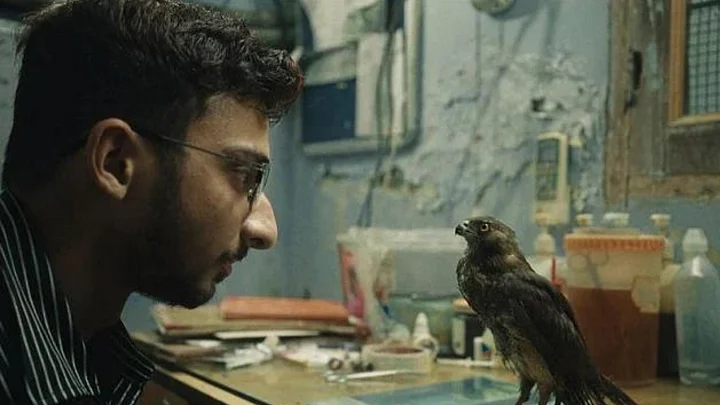Shaunak Sen's All That Breathes won the World Documentary Grand Jury Prize at the 2022 Sundance Film Festival, and it is the most brilliant visual take on Delhi's lethal air pollution.
A documentary which addresses an issue so vast and often assumed to be devoid of emotions-- air pollution, still manages to zoom in and move the audience. Sen's lens is tight and intimate.
The first shot pans slowly, you see rodents, car headlights in the backdrop. The ambient sounds gradually go up, peak, and the shot ends as the light from a vehicle's headlight blinds you. Seconds into the documentary and you are already uncomfortable, sitting up, noticing, ready to listen.
You see the city from Sen's lens, which is very personal and up close. Close up shots of the mice, ants, pigs, kites, lizards and so on are scattered through the documentary. They are eerie and unsettling. They give you moments to process a story that Sen has almost deliberately kept subtle.
It is a story of two brothers who save kites that drop from the sky, injured. It is also a story of the changing landscape of the city, its climate, the filthy waters, the increasingly polluted sky. It is also the story of a city that is witnessing a dramatic shift in its political climate.
And despite dealing with these intense themes, the documentary is far from didactic. Things are happening and the audience is trusted to make sense of it.
You hear the slogans at the protest, you see the newscasters talking about the volatile state of the city, you sense the ongoing violence, you feel the fear. But none of it is loud or jarring. It is moving in its own mellow, yet powerful, ways.
All That Breathes is 93 minutes of impactful, intimate, compelling, unnerving, poignant, and sharp visual poetry.
(This review is from The Quint's archives and is being republished as the film has won The Golden Eye at the 75th Cannes Film Festival.)
(At The Quint, we question everything. Play an active role in shaping our journalism by becoming a member today.)
